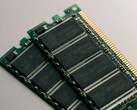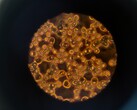ZME Science recently reported that an international research team led by University College London (UCL) has developed a new generation of perovskite solar cells specifically optimised for harvesting energy from indoor lighting. These cells managed to achieve a record-breaking efficiency of 37.6% under 1000 lux – a brightness level comparable to that of a well-lit office – making them about six times more efficient than the best commercially available indoor solar panels.
Battery-free devices
UCL highlights that these advancements could pave the way for battery-free devices. In the future, remote controls, wireless keyboards, sensors, and alarms could be powered by ambient light, thus rendering battery replacement unnecessary and reducing e-waste.
Technology and innovation
According to UCL, the key to this breakthrough lies in using perovskite as a semiconductor. Perovskite solar cells exhibit strong light absorption and are easy to manufacture. However, defects in their crystal structure – called “traps” – have so far resulted in energy loss and decreased durability. The UCL team addressed this problem by applying a special chemical treatment with rubidium chloride to stabilise the crystal structure and reduce the number of defects.
Performance and lifespan
Besides high efficiency, the new perovskite solar cells have also demonstrated remarkable durability, as noted by SpaceDaily. In one experiment, they managed to retain 92% of their original efficiency after spending 100 days under office lighting, suggesting a minimum lifespan of five years. In another test, exposing the cells to an extreme temperature of 55°C (131°F) for 300 hours only caused a 24% performance loss.
Outlook
The perovskite solar cells could eventually eliminate the need for batteries in small electronic devices. This would not only make everyday life more convenient but also significantly cut the amount of e-waste generated. If successfully commercialised, the technology could mark a major step towards sustainable battery-free electronics.












